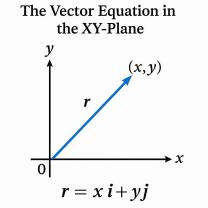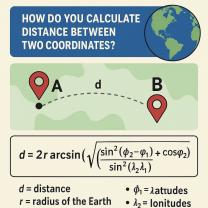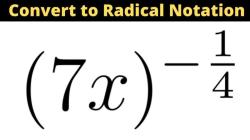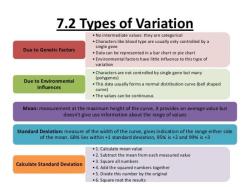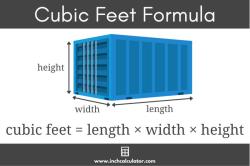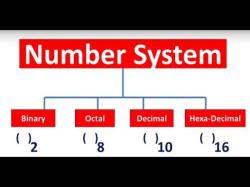What is integral calculus used for?
Integral calculus is a branch of mathematics that deals with integrals, which are essentially the inverse of derivatives. It has a wide range of applications in various fields of mathematics and science. Here are some of the primary uses of integral calculus in mathematics:
Area and Accumulation: One of the fundamental applications of integral calculus is to find the area under curves. This is used in various areas of mathematics and science, such as geometry and statistics. For instance, the definite integral of a function over an interval can be used to calculate the area between the curve and the x-axis.
Antiderivatives: Integral calculus is used to find antiderivatives, which are functions that, when differentiated, give the original function. This is crucial for solving differential equations and plays a significant role in various mathematical modeling and physics problems.
Limiting Processes: Integrals can be used to define limits and explore the convergence or divergence of sequences and series. This is important in real analysis and calculus.
Probability and Statistics: In probability theory, the integral is used to calculate probabilities by finding the area under probability density functions. In statistics, integral calculus helps in calculating cumulative distribution functions and expected values.
Geometry: Integral calculus is used to find various geometric properties, such as arc length, surface area, and volume of complex shapes. It is especially important in solid geometry and calculus of variations.
Vector Calculus: In multivariable calculus, integral calculus is used to compute line integrals, surface integrals, and volume integrals. These are essential in vector calculus, which is applied in physics, engineering, and other fields.
Differential Equations: Integral calculus plays a crucial role in solving differential equations, both ordinary and partial. Many real-world problems in physics, engineering, and biology are modeled using differential equations, and integral calculus is used to find solutions.
Fourier Analysis: Fourier series and Fourier transforms involve integral calculus and are used in signal processing, electrical engineering, and many other areas to analyze and manipulate functions and signals.
Optimization: In mathematical optimization, integral calculus helps find the maximum or minimum values of functions, which is essential in various fields, including economics, engineering, and operations research.
Complex Analysis: In complex analysis, integrals are used to evaluate contour integrals, calculate residues, and solve complex differential equations.
Number Theory: Integral calculus has applications in number theory, particularly in the study of the distribution of prime numbers and other number-theoretic functions.
These are just some of the many applications of integral calculus within the field of mathematics. In addition to mathematics, integral calculus has a wide range of applications in physics, engineering, economics, biology, and other sciences, where it is used to model, analyze, and solve a variety of real-world problems.
Practical Applications of Integral Calculus
Integral calculus is a powerful tool that has many practical applications in a wide range of fields, including:
- Engineering: Integral calculus is used to calculate the area, volume, and center of mass of objects, as well as to design bridges, buildings, and other structures.
- Physics: Integral calculus is used to calculate the velocity, acceleration, and work done by an object, as well as to solve problems in electricity, magnetism, and fluid dynamics.
- Economics: Integral calculus is used to calculate the demand for goods and services, as well as to optimize production and distribution.
- Finance: Integral calculus is used to calculate the risk and return of investments, as well as to price derivatives such as options and futures contracts.
- Medicine: Integral calculus is used to develop new drugs and treatments, as well as to diagnose and monitor diseases.
Solving Real-World Problems with Integral Calculus
Here are a few examples of how integral calculus can be used to solve real-world problems:
- Calculating the area under a curve: This can be used to calculate the amount of water in a reservoir, the amount of gasoline used by a car, or the amount of solar energy collected by a solar panel.
- Calculating the volume of a solid: This can be used to calculate the amount of concrete needed to build a dam, the amount of oil in a reserve, or the amount of air displaced by an airplane.
- Calculating the center of mass of an object: This can be used to design airplanes and rockets that are stable in flight, or to build bridges that can withstand earthquakes.
- Calculating the velocity and acceleration of an object: This can be used to track the motion of a planet, design a roller coaster that is safe and exciting, or predict the trajectory of a missile.
- Calculating the work done by a force: This can be used to calculate the energy required to pump water to the top of a building, or the amount of fuel needed to launch a rocket into space.
The Role of Integral Calculus in Mathematics and Science
Integral calculus is a fundamental tool in mathematics and science. It is used to derive many important formulas and to solve a wide range of problems. For example, integral calculus is used to derive the following formulas:
- The area under a curve is equal to the definite integral of the function defining the curve.
- The volume of a solid is equal to the triple integral of the function defining the solid.
- The center of mass of an object is equal to the average of the positions of its points, weighted by their masses.
- The velocity of an object is equal to the integral of its acceleration.
- The work done by a force is equal to the integral of the force over the distance traveled.
Integral calculus is also used to solve many important problems in mathematics and science, such as:
- Finding the path of a projectile
- Calculating the flow of fluid in a pipe
- Predicting the spread of a disease
- Designing optimal control systems
- Developing new algorithms for image processing and machine learning
Techniques and Methods for Integrating Functions
There are many different techniques and methods for integrating functions. Some of the most common methods include:
- U-substitution: This method is used to integrate functions that contain composite functions.
- Integration by parts: This method is used to integrate functions that are the product of two functions.
- Trigonometric integration: This method is used to integrate functions that contain trigonometric functions.
- Partial fractions: This method is used to integrate functions that can be expressed as a sum of rational functions.
- Numerical integration: This method is used to integrate functions that cannot be integrated using analytical methods.
Resources for Learning and Mastering Integral Calculus
There are many resources available for learning and mastering integral calculus. Some of the most popular resources include:
- Textbooks: There are many excellent textbooks available on integral calculus. Some of the most popular textbooks include "Calculus" by James Stewart and "Calculus: Early Transcendentals" by Howard Anton.
- Online courses: There are many online courses available on integral calculus. Some of the most popular courses are offered by Khan Academy, MIT OpenCourseWare, and Coursera.
- Private tutoring: If you need more personalized help, you can hire a private tutor to help you learn integral calculus.
If you are interested in learning more about integral calculus, I encourage you to explore the resources listed above. Integral calculus is a powerful tool that can be used to solve a wide range of problems in many different fields.


